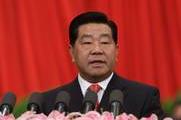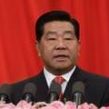
Towing the Party Line on Free Speech
Publication: China Brief Volume: 9 Issue: 5
By:

In recent years, party officials in the People’s Republic of China (PRC) have been uncharacteristically bold in speaking about freedom (ziyou) and democracy (minzhu), both long-standing taboos in the Chinese Communist Party’s (CCP) private and public lexicon. Analysts who monitor developments in China attribute this boldness, which is frequently exhibited in Beijing’s rebuttal of Western criticism for its shortfall in human rights and democratic deficits, to the Party’s increased confidence caused by the country’s rapid economic development in the past several decades. The linear trajectory of China’s unprecedented economic growth has prompted some observers to predict the inevitability of greater freedom and the regimes’ political liberalization. Since January 2009 there have been steady streams of articles in the Chinese media concerning freedom of speech, particularly four key articles on this subject. The appearance of these articles suggest that a major debate is underway within the ranks of Chinese political and intellectual elites that are testing the limits of the party’s line on the freedom of speech—at home and abroad.
Beijing Daily
The Beijing Daily (https://www.bjd.com.cn/), the media organ of the CCP’s Beijing City Council, published an article on January 13, entitled, “Seeking the Truth Cannot Separate from Freedom of Speech,” written by Communication University of China Professor Shen Minte. In his article, Shen argues forthright that freedom of speech is enshrined in the Chinese constitution. Shen, who is also a noted writer and commentator called on the CCP to "seriously put in practice the important provisions of the freedom of speech that is in the Chinese constitution" (Yazhou Zhoukan, February 2).
The People’s Daily
The People’s Daily (https://www.people.com.cn/), the media organ of the CCP Central Committee, published an article on January 13—the same day as Shen’s article—entitled, “How Could Government Officials Survive Internet Scrutiny,” written by Wong Xiaotong. In his short commentary, Wong said that party cadres have to survive internet scrutiny, and that "some people and some things cannot survive internet scrutiny, when they are exposed on the internet its problems are readily revealed." According to the weekly magazine Yazhou Zhoukan, Wong’s article affirmed the Party’s tacit approval of the role of “internet scrutiny” (wangluo jianbu), which testifies to the increasing importance of the internet as a tool for supervision; and also as a forum for pooling public opinion and stimulating the interests of citizens for participating in public affairs (Yazhou Zhoukan, February 2).
Yan Huang Chun Qiu
The January volume of Yan Huang Chun Qiu (https://www.yhcqw.com/) published an article entitled, “Constitutional Politics: The Demand for China’s National Revival,” written by Chen Hung-yee, a law professor at The University of Hong Kong and member of the Hong Kong Basic Law Committee of the Standing Committee of the National People’s Congress and member of the Law Reform Commission of Hong Kong.
Yan Huang Chun Qiu (Chinese Chronicles) is a well-respected monthly Beijing journal, which is dedicated to "researching and revealing historical truths," and is known to publish commentaries by party elders and public intellectuals that have often broached sensitive issues about CCP reform. In the past, the journal published an interview with Ren Zhongyi, the former-party secretary of Guangdong; an assessment of Hu Yaobang by many party elders that include Tian Jiyun, Li Rui and Cao Zhixiong, the former secretary to Hu Yaobang, among others, which was once banned by the CCP’s Propaganda Department; a long essay by Xie Tao, the retired vice-principal of Renmin University in Beijing, entitled, "The Democratic Socialist Model and China’s Future," which caused a major stir in China’s pseudo political-academic community (Ming Pao [Hong Kong], July 13, 2007).
In his essay, Chen wrote that "rule by law and constitutional politics are fundamental universal values." He added that "political power can be abused, and absolute power can lead to absolute corruption, so the exercise of power needs to be limited and regulated to prevent the abuse of power, safeguard human rights and ensure that the government is accountable to the people" (Yazhou Zhoukan, February 2).
Qiu Shi
The fact that two of the three articles were published by mainstream official media outlets in the run up to the Second Session of the 11th National Committee of the Chinese People’s Political Consultative Conference (CPPCC), which opened on March 3 and is scheduled to conclude on March 12, suggested to some analysts that a major debate is in the offing (Yazhou Zhoukan, February 2), but the strong official rebuke penned by Jia Qinglin, chairman of the CPPCC, in the Party Magazine Qiu Shi (Seeking Truth) on January 16, indicate that the Party has no intention of loosening its control over the people’s freedom of speech—which is ironically guaranteed under the Chinese constitution. In his article, Jia wrote:
"(We must) continue to uphold the correct political direction, steadfastly walk along the unique Chinese socialist political road; build a solid defense against Western Two-party or Multi-party system; against the Two-House, Three-Power Center system and various other wrong ideas.”
Jia’s comment is interpreted by some analysts as a clear attempt to squash the debate on free speech in official Chinese media. At the same time, Jia’s quick rebuttals could also be seen as a sign of heated debate among Chinese leaders.
According to political insiders in Beijing cited by Yazhou Zhoukan, these calls for free speech represent only one of many different voices, and that 2009—which is set with so many sensitive anniversaries—decreases the likelihood that the Party will loosen its monopoly over the media (Yazhou Zhoukan, February 2). Remarks by senior Chinese officials seem to indicate that the Party has taken note of the media’s strategic value for use not only at home but also abroad.
Another article by China’s propaganda chief Liu Yunshan in the January volume of Qiu Shi stated that: “It has become an urgent strategic task for us to make our communication capability match our international status … Nowadays, nations which have more advanced skills and better capability in communications will be more influential in the world and can spread their values further.” Liu’s calls were amplified by Li Changchun, the party’s top ideologue. Li said: “Enhancing our communication capacity domestically and internationally has a direct bearing on our nation’s international influence and position, has a direct bearing on the raising of our nation’s cultural soft power, and a direct bearing on the function and role of our nation’s media within the international public opinion structure” (Straits Times, January 15).





